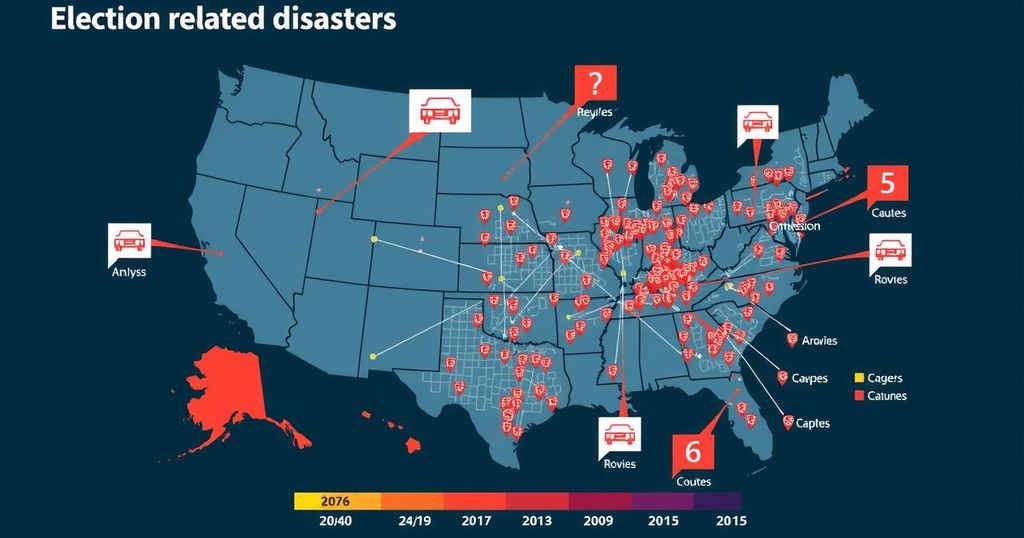Impact of Extreme Weather on Election Processes in 2024

Extreme weather during the 2024 Election Supercycle affected elections in 14 countries, causing disruptions ranging from vote delays in Tuvalu to heat-related deaths in India. The EECM by International IDEA highlights these electoral challenges and provides resources for understanding impacts on democratic processes.
The 2024 Election Supercycle year witnessed significant disruptions in the electoral processes of 14 countries due to extreme weather events, driven partly by climate change. Noteworthy incidents unfolded in various nations, including delays in Tuvalu’s Prime Minister vote due to storms and high tides, as well as the tragic consequences of heatwaves in India, which claimed numerous lives during the country’s election season. Other countries experienced similar challenges; for instance, heavy rains in Austria necessitated the relocation of polling stations during the EU elections, while Mexico faced a record heatwave affecting voter turnout on the eve of its general election. Moreover, pre-election turmoil plagued the United States as Hurricanes Helene and Milton led to significant disruptions in multiple states, further complicating the electoral landscape. Responding to these crises, the International IDEA’s Election Emergency and Crisis Monitor (EECM) provides vital insights and resources concerning elections impacted by various forms of natural disasters, including floods and hurricanes.
In recent years, elections worldwide have become increasingly vulnerable to the repercussions of climate change. The linkage between extreme weather events and electoral processes necessitates an examination of the corresponding impacts and operational adaptations implemented by electoral authorities. The International IDEA’s Election Emergency and Crisis Monitor offers a comprehensive assessment of these phenomena, showcasing how disasters disrupt electoral cycles, thereby challenging the integrity of democratic processes. The dashboard allows users to explore a wealth of information regarding specific incidents and their implications for electoral practices across various regions.
The instances of electoral disruption due to extreme weather events during the 2024 Election Supercycle underscore the critical need for resilient electoral systems capable of adapting to environmental challenges. Assessing the impacts of these disasters, alongside strategies for maintaining electoral integrity, is imperative for the future of democratic governance. The International IDEA’s Electoral Emergency and Crisis Monitor serves as a crucial resource for understanding and responding to the increasing intersection of climate and elections.
Original Source: www.idea.int






